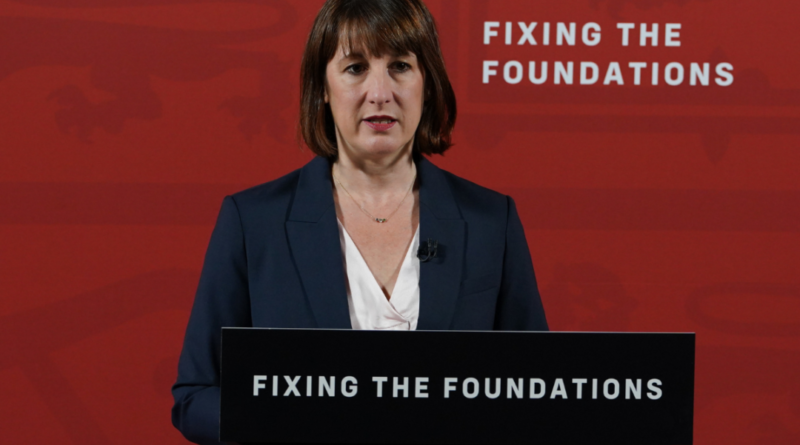In response to the budget, the Pound devalues, Stock prices drop, and Government borrowing rates increase.
To compound the negative market reaction, major ratings agencies S&P and Moody’s have delivered mixed feedback on the Budget.
Following Chancellor of the Exchequer Rachel Reeves revealing plans to boost state spending by £70 billion annually through tax and borrowing increases, the FTSE 100 witnessed a decline, and both sterling against the dollar and the euro weakened.
The yield, indicating the interest rate on a 10-year government bond, surged to 4.568 percent on Thursday afternoon, marking the highest level since August 2023. This increase was in response to Reeves’ spending and tax proposals.
Kathleen Brooks, an analyst at trading firm XTB, shared that the higher gilt yield signifies that the Budget has not been well received by the markets. She added, “This is another indication that the Chancellor overestimated the market’s willingness to absorb more sovereign debt from the UK.”
Meanwhile, the Office for Budget Responsibility projects that inflation will remain above the Bank of England’s 2 percent target until 2029, with predictions of an average rate of 2.5 percent this year and 2.6 percent in 2025.
Impact on Stocks and Sterling
Continuing the negative sentiment, sterling fell to $1.2856 against the dollar after 3 p.m. on Thursday, hitting a more than two-month low. Additionally, sterling dipped by 0.8 percent against the euro, reaching 1.185 euros.
Analyst Kyle Chapman from trading firm Ballinger Group suggested that the decline in sterling and the rise in gilt yields indicate that the market believes the new Labour government has overextended its spending and borrowing plans.
Chris Turner, global head of markets at ING, noted that although the pound’s fall against the euro wasn’t as drastic as after former PM Liz Truss’s Budget announcement, it still reflects sterling’s response to Gilt supply risk.
On Thursday afternoon, London’s FTSE 100 dropped by 49.53 points, or 0.61 percent, ending at 8,110.1. Notable decliners on the UK stock market index include Persimmon, Taylor Wimpey, Barratt Redrow, Whitbread, and Smith & Nephew.
Susannah Streeter, head of money and markets at Hargreaves Lansdown, observed that markets are experiencing “fresh nervousness” regarding the economic outlook following the Budget. She mentioned, “Expectations for interest rate cuts have been scaled back due to projections of increased inflation over the next two years.”
Warnings from Ratings Agencies
Adding to the market’s negative response, top ratings agencies S&P and Moody’s presented varying assessments of the Budget without altering their ratings of the UK’s debt.
S&P mentioned that the enhanced spending would boost short-term growth but it is too early to measure the long-term impact. They indicated that increased public service spending could foster a more business-friendly environment, but its success depends on efficient deployment of spending.
Moody’s criticized Reeves’s adjustment of fiscal rules to allow for more borrowing, highlighting the challenge it poses for already tough fiscal consolidation prospects. They cautioned that heightened public spending leaves limited buffer for future financial shocks and unless issues like low productivity are addressed, growth will be restricted.



